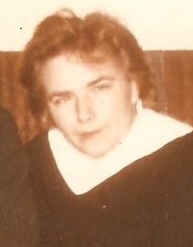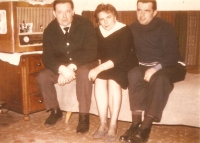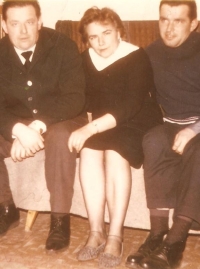She saw Adolf Hitler and the US Army using the bridge in Loket

Download image
Hedvika Žalská was born into a German family in Nové Sedlo on 17 July 1935. She spent her early childhood and World War II in Loket where she witnessed Adolf Hitler’s arrival in 1939 as well as the liberation by US Army in 1945. She lost her mother during the war. The post-war deportations of Germans divided the family for many years. Her father was a miner and, as such, was not forced to leave, but had to vacate his house. Hedvika Žalská and her younger brother stayed in Czechoslovakia with their father whereas her older brother and all the other family members including her beloved grandma were deported to eastern Germany. Hedvika Žalská and her younger brother were the only two German children in the local Junák (boy/girl scout) organisation. They even took part in a First of May parade wearing the Junák uniforms. Hedvika Žalská was to take her machine fitter training in 1951 but contracted typhus. She just barely survived and the sickness made her weak for a long time. She never completed the school. Along with her father and brother, she returned to the Karlovy Vary area and made her own living. She always shunned politics. In the 1960s, she was allowed to visit her relatives in Germany. In 1981, she first visited western Germany where her eldest brother had fled. She has perceived herself as being Czech. She was living in Karlovy Vary in 2022.


